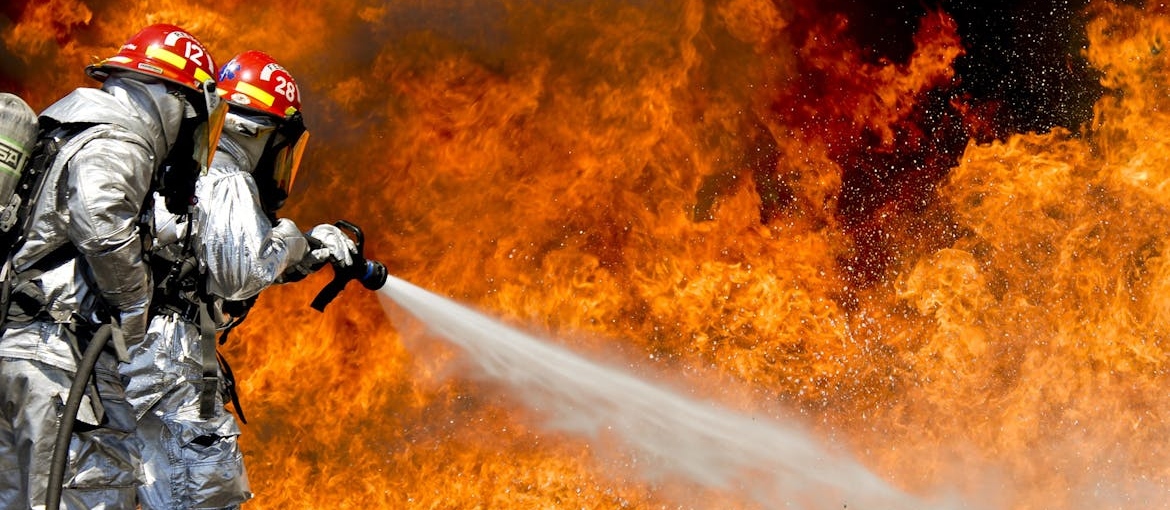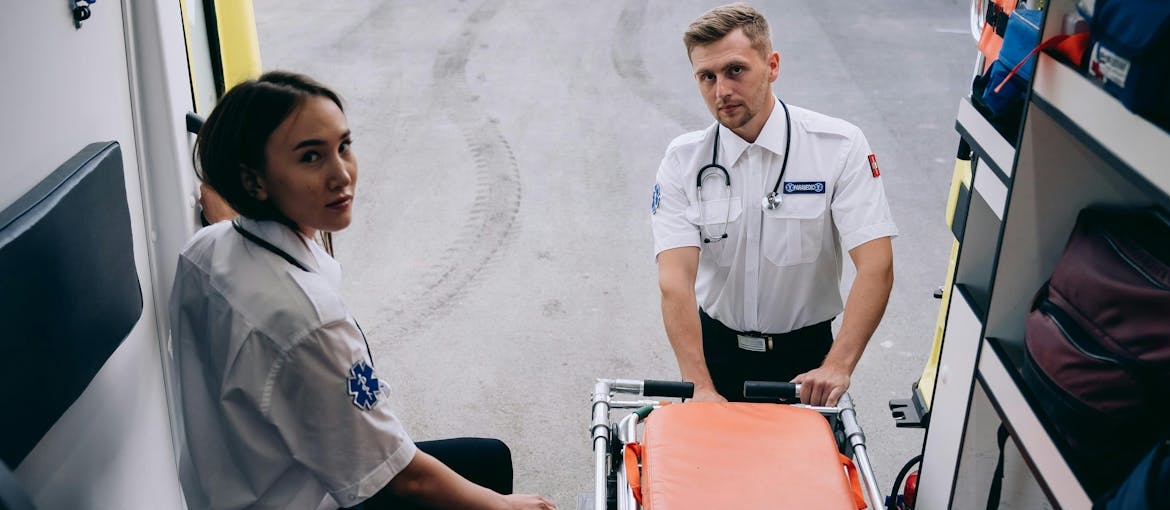First responders carry a lot, even after addiction recovery. Going back to work can bring new stress and hidden struggles. The mix of past trauma, high-pressure situations, and ongoing triggers makes it hard to stay balanced. Many people don’t realize how deep these struggles can go. The mental health challenges first responders face often feel overwhelming, even with strong support at home or work. It’s common to feel pressure to be “okay” fast, but healing takes time. Some may need extra help along the way, and that’s okay too. Places like detox centers in WV help people start fresh, but long-term mental health care is just as important. We’ll look at common mental health hurdles, how to manage them, and where to find real support that works.
Understanding the Unique Stressors First Responders Face
First responders face mental and physical stress every day. Even after rehab, their jobs keep testing them. The mental health challenges first responders face are shaped by things many people never experience. From constant exposure to trauma to risky, fast decisions, the pressure never really stops. These stressors explain why do first responders struggle with mental health after recovery and why extra care is needed to stay well. Below are the biggest challenges.

Daily Exposure to Trauma and Violence
First responders see violence, injury, and death regularly. These events don’t fade fast and can build up quietly. The link between trauma and addiction among first responders is strong. It’s no surprise many feel drained or stuck after facing so much pain. These scenes leave lasting emotional scars. This repeated trauma is one of the biggest mental health challenges first responders face.
No matter how tough someone feels, it takes a toll. Many ask how can first responders manage emotional trauma after addiction treatment. Therapy and peer support are key tools to help manage these long-term effects. Talking openly breaks the silence and helps release the weight. Healing starts with honest conversations and real help that fits their world.
The Pressure of Split-Second Decisions
Every call needs a fast response. First responders don’t get time to think deeply in a crisis. One wrong move can change a life forever. This constant demand to act fast is draining and fuels mental health challenges first responders face daily. When recovery adds another layer, the pressure doubles. Many who complete first responders rehab return to work and face old stress again. It’s normal to feel anxious or unsure.
These quick decisions can trigger past feelings tied to addiction. That’s why first responders mental health struggles often come back even after rehab. Ongoing counseling helps manage this stress and keeps recovery on track. Staying open about struggles is brave and can stop small issues from growing.

High Risk of Physical Danger and Injury
The job comes with real danger. Physical harm is a daily risk, and it adds to mental stress. Here are common risks you face:
- Physical assault: Facing violence during calls.
- Car accidents: Crashes during high-speed responses.
- Fire and burns: Exposure to extreme heat.
- Falls: Accidents at dangerous scenes.
- Weapon injuries: Dealing with armed suspects.
- Hazardous materials: Exposure to toxic substances.
Common Mental Health Challenges After Recovery
Mental health struggles don’t stop once rehab is done. In fact, they can grow as life settles back into old patterns. The mental health challenges first responders face post-recovery often include new layers of anxiety, sadness, and flashbacks. Many ask what mental health issues are common in first responders post-rehab, and the list is long. Keeping recovery strong means facing these feelings head-on. Therapy, peer talks, and family support can make the road easier. Let’s look at what to expect and how to respond.
Anxiety and Persistent Fear
Anxiety is a huge part of life for many first responders after rehab. Even when they are sober, fears often linger. The stress of the job stirs up old feelings and new worries. These fears tie directly to the mental health challenges first responders face every day. Left untreated, they can weaken your recovery and mental health.
Studies show that addiction on the local workforce in West Virginia is worsened by untreated anxiety and trauma. It’s important to tackle these feelings early. Simple tools like breathing exercises and regular counseling sessions help lower anxiety. Staying connected to supportive coworkers and family members also eases the load. Don’t push anxiety aside—it grows when ignored.
Depression and Emotional Numbness
Depression is very common after rehab. You may feel tired, low, or numb. This emotional flatness makes it hard to stay motivated. Depression is one of the top mental health challenges first responders face after recovery. Even if your body feels better, your mind may still struggle. Many people ask why do first responders struggle with mental health after recovery, and depression is a huge reason.
In West Virginia, dual diagnosis treatment West Virginia programs focus on both addiction and mental health at the same time. Talking about depression is hard but necessary. Regular therapy and medication (when needed) help manage these feelings. Keep your circle tight with people who listen and care. Healing takes time, but every step matters.

Post-Traumatic Stress Symptoms
PTSD symptoms can show up months or years later. Triggers like sounds, smells, or scenes can bring back awful memories. Here are signs to watch for:
- Flashbacks: Reliving traumatic moments.
- Nightmares: Scary dreams about past calls.
- Avoidance: Steering clear of reminders.
- Anger: Sudden outbursts of rage.
- Guilt: Feeling bad for things you couldn’t change.
- Hypervigilance: Always on edge, watching for threats.
The Impact of Returning to Work Post-Rehab
Going back to work after rehab feels like a huge step. For first responders, it’s even harder because the same stress and danger are still there. The mental health challenges first responders face don’t stop just because treatment ends. Triggers show up fast, and it’s easy to feel overwhelmed again. Many worry about judgment from coworkers or fear slipping back into old habits. These fears are normal and deserve attention.
Emotional trauma in first responders can make things feel even heavier during those first weeks back. You might feel confident some days and unsure on others. That’s okay. What matters is having a plan and using the tools you learned in treatment. Regular therapy, peer support, and honest talks with supervisors all help you stay steady through this transition. You don’t have to handle it alone.
The Role of Therapy in Long-Term Stability
Therapy plays a big role in keeping you grounded long after rehab ends. The mental health challenges first responders face don’t vanish on their own. That’s why therapy should be part of your routine, not just a quick fix. The importance of therapy for first responders after addiction can’t be stressed enough. Therapy helps unpack deep pain, rebuild self-trust, and create lasting habits that keep recovery solid. Below are proven therapy options to explore.

Cognitive Behavioral Therapy for Managing Stress
CBT helps you challenge negative thoughts and swap them with healthier ones. It’s one of the best tools to tackle the mental health challenges first responders face daily. A stimulants addiction rehab center often uses CBT because it works well for CBT teaches practical steps to stay calm and in control during high-stress moments. It also helps you spot unhealthy patterns before they grow. Here are key CBT tools:
- Thought records: Track negative thoughts.
- Coping cards: Quick reminders of positive steps.
- Relaxation training: Learn ways to calm your body fast.
- Exposure therapy: Slowly face triggers safely.
- Problem-solving: Break down big worries into steps.
Group Therapy With Fellow First Responders
Group therapy offers real support. Talking with others who “get it” feels different than talking to outsiders. First responders often bond fast because of shared stories. These meetings ease loneliness and cut down shame. Mental health challenges first responders face can feel less scary when shared.
Many also wonder does FMLA cover rehab, and group sessions are a good space to ask questions and get help with work policies. Trust builds quickly in these groups, and advice feels more personal. Regular check-ins keep your mental health strong and recovery steady. If you feel isolated, this is a great place to start opening up again.

Exploring Family Therapy
Your job and addiction impact your whole family. Healing as a unit is key. Family therapy for addiction brings everyone into the recovery process. This teamwork is crucial for building resilience in first responders after addiction treatment. Family sessions teach healthy ways to talk about feelings, solve problems, and support each other.
Many families don’t know how to help, and therapy gives them clear steps. These sessions also address old wounds and prevent new conflicts from growing. Honest talks in a safe space keep bonds strong. Everyone deserves to heal together.
Building a Strong Support System
Recovery feels easier when you’re not doing it alone. The mental health challenges first responders face need more than willpower. You need people you trust and safe places to talk. This is key for how first responders cope with emotional trauma post-recovery. Stay connected to friends, family, and others who want to see you succeed. Your team can include different kinds of help:
- Therapists: For regular check-ins and growth.
- Peer groups: People who understand your job.
- Family and friends: Daily support at home.
- Work allies: Trusted coworkers or supervisors.
- Hotlines and apps: Help when you need it fast.
- Faith leaders: Extra moral support if it fits your life.
Preventing Relapse in High-Stress Roles
The job itself can push you toward relapse if you’re not careful. Stress, danger, and trauma don’t just disappear after treatment. The mental health challenges first responders face often hit hardest when work gets intense again. That’s why relapse prevention must be part of your daily routine. You’ll face common mental health issues in first responders after rehab like anxiety, sadness, and burnout.
Spotting warning signs early makes a big difference. Take breaks when you feel overloaded. Keep using coping tools you learned in therapy. Don’t skip support meetings, even when you’re busy. Talk to someone if you feel cravings or old habits creeping back in. Staying sober is a daily choice. With practice, it becomes easier to manage. Stay honest with yourself and others. Recovery is possible, even in the toughest roles.

Resources and Tools for First Responders
You don’t have to handle everything on your own. Many groups and programs are built to support you. The mental health challenges first responders face can feel heavy, but good tools make a difference. It’s smart to keep a list of resources close, even if things seem okay right now. These can help when stress hits hard or new problems show up. Some focus on crisis help, while others offer long-term care. Explore what works best for you. Here are some useful options to check out:
- Peer support groups: Meet others who get your struggles.
- Therapy programs: Get help from mental health pros.
- Crisis hotlnes: Call or text anytime things feel too heavy.
- Online therapy services: Talk to someone without leaving home.
- First responder wellness apps: Track your mood and stress levels.
Next Steps for First Responders Facing Mental Health Challenges
The road after addiction recovery isn’t simple, especially for first responders. You face stress that most people can’t fully understand. It’s normal to struggle, even when things seem stable on the outside. The mental health challenges first responders face don’t end after rehab. They often show up later, when the pressure builds again. That’s why it’s so important to keep working on your mental health, not just your sobriety. Real healing takes time and patience, but you’re not in this fight alone. Keep going. You deserve care that lasts.



